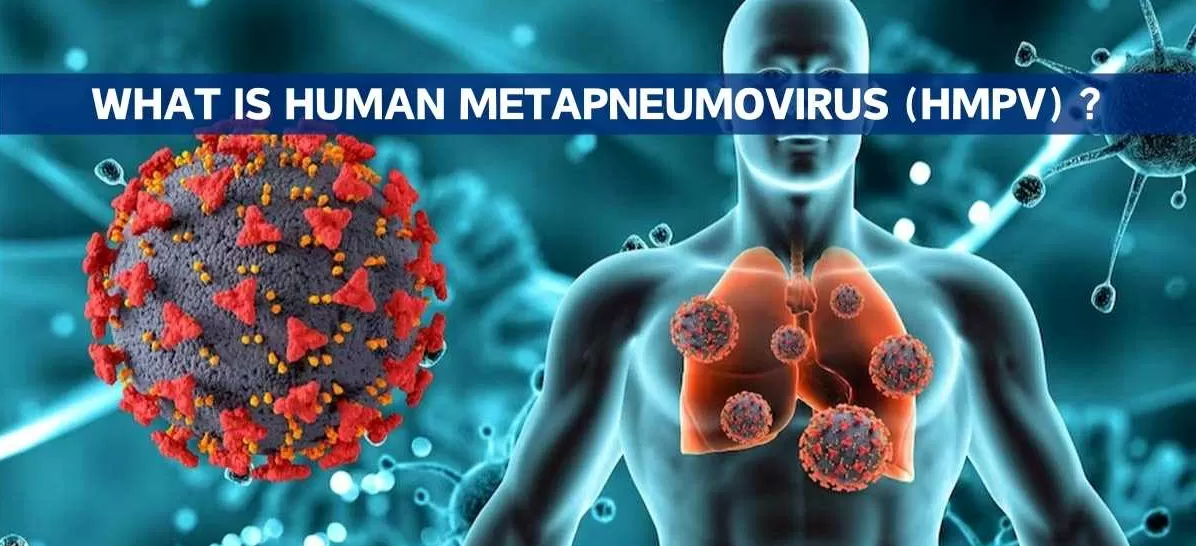1. Introduction to Human Metapneumovirus (HMPV)
1.1. Discovery and classification of HMPV
Hey there! Ever heard of HMPV? Don’t worry if you haven’t – many people haven’t! HMPV, or Human Metapneumovirus, is a relatively new kid on the block in the world of viruses. It was first discovered in 2001 by Dutch scientists who were looking for unknown viruses in children with respiratory tract infections.
HMPV belongs to the Pneumoviridae family, which also includes the respiratory syncytial virus (RSV). It’s a RNA virus, which means it can change and adapt pretty quickly – kind of like how we change our outfits to suit the weather!
1.2. Prevalence and global distribution
You might be surprised to learn that HMPV is actually pretty common. It’s found all over the world and affects people of all ages. Studies show that by the time we’re 5 years old, most of us have already been infected with HMPV at least once. In fact, it’s responsible for about 5-10% of all respiratory infections in both kids and adults. That’s a lot of sniffles and coughs!
1.3. Relationship to other respiratory viruses
HMPV is like the cousin of other respiratory viruses you might be more familiar with, like the common cold or flu. It causes similar symptoms, which is why it often flies under the radar. But here’s the kicker – HMPV can actually make your regular cold symptoms much worse. It’s like inviting that one friend over who always cranks up the music at parties – suddenly, everything’s more intense!
2. Understanding HMPV Infection
2.1. Transmission methods and risk factors
HMPV spreads just like other respiratory viruses – through close contact with infected people or by touching surfaces that have the virus on them. When someone with HMPV coughs or sneezes, they release tiny droplets into the air that can infect others.
Risk factors for getting HMPV include:
- Being in crowded places (hello, public transport!)
- Having a weakened immune system
- Being very young or elderly
- Having other health conditions like asthma or heart disease
2.2. Incubation period and duration of illness
After you’re exposed to HMPV, it usually takes about 3 to 6 days before you start feeling sick. This is called the incubation period. Once symptoms start, they typically last for about a week or two. But don’t be surprised if you’re still feeling a bit under the weather for a few weeks after – HMPV can really take it out of you!
2.3. Common symptoms and their severity
HMPV symptoms are pretty similar to other respiratory infections, but they can be more severe. You might experience:
- A bad cough that just won’t quit
- Fever and chills (like you’re stuck in a faulty freezer!)
- Runny or stuffy nose
- Sore throat
- Wheezing or difficulty breathing
- Fatigue that makes you want to hibernate
Some people describe HMPV as feeling like “the worst cold ever” – and they’re not exaggerating!
3. HMPV vs. Common Cold: A Comparison
3.1. Similarities in initial symptoms
At first, HMPV and the common cold can look like twins. Both start with the usual suspects: sneezing, runny nose, cough, and maybe a slight fever. It’s like they’re playing a trick on us!
3.2. Key differences in progression and intensity
Here’s where HMPV shows its true colors. While a common cold usually peaks after a few days and then starts to improve, HMPV often gets worse. The cough becomes more severe, breathing difficulties might develop, and that tired feeling? It’s like someone turned the exhaustion dial up to 11!
3.3. Potential complications of HMPV infection
HMPV can lead to more serious problems, especially in young children, older adults, and people with weak immune systems. These can include:
- Pneumonia
- Bronchitis
- Asthma attacks in people who have asthma
- In severe cases, it can even lead to hospitalization
It’s like HMPV is that uninvited guest who not only crashes your party but also invites a bunch of rowdy friends!
4. Diagnosis and Testing for HMPV
4.1. Clinical assessment and challenges
Diagnosing HMPV can be tricky because it looks so much like other respiratory infections. Doctors usually start by asking about your symptoms and doing a physical exam. They might listen to your lungs and check for signs of infection.
The challenge is that HMPV is a master of disguise. It’s hard to tell it apart from other viruses just based on symptoms alone. It’s like trying to spot your friend in a crowd where everyone’s wearing the same outfit!
4.2. Available diagnostic tests and their accuracy
To know for sure if you have HMPV, doctors can use special tests. The most common one is called PCR (polymerase chain reaction). It looks for the genetic material of the virus in samples from your nose or throat.
These tests are pretty accurate, but they’re not perfect. Sometimes they might miss the virus (false negative) or pick up on a virus that’s not actually causing your current symptoms (false positive). It’s a bit like fishing – sometimes you catch what you’re after, sometimes you don’t!
4.3. Importance of proper diagnosis for treatment
You might wonder why it matters to know if you have HMPV or just a regular cold. Well, knowing the culprit can help doctors decide on the best treatment plan. It can also help prevent the spread of the virus to others, especially in places like hospitals or nursing homes where people might be more vulnerable.
Plus, if doctors know HMPV is going around, they can be better prepared to deal with more severe cases. It’s like having a weather forecast for viruses!
5. Treatment Approaches for HMPV
5.1. Supportive care and symptom management
Now, I hate to break it to you, but there’s no magic pill that can cure HMPV. Treatment is mostly about managing symptoms and helping your body fight off the virus. This might include:
- Getting plenty of rest (Netflix marathon, anyone?)
- Drinking lots of fluids to stay hydrated
- Using over-the-counter pain relievers for fever and aches
- Using a humidifier to ease breathing
- Trying saline nasal drops to clear congestion
It’s like nursing any other bad cold, but you might need to give yourself extra TLC.
5.2. Antiviral medications: Current options and research
Currently, there aren’t any antiviral medications specifically approved for HMPV. Some doctors might try using drugs that work against similar viruses, but the jury’s still out on how effective these are.
The good news is that researchers are working hard to develop new treatments. It’s like scientists are in a race to create the next big thing in fighting HMPV!
5.3. Prevention strategies and lifestyle recommendations
Prevention is always better than cure, right? Here are some tips to help you avoid HMPV:
- Wash your hands frequently (sing ‘Happy Birthday’ twice while you do it!)
- Avoid touching your face with unwashed hands
- Stay away from sick people if possible
- Keep your immune system strong with a healthy diet, regular exercise, and good sleep habits
Think of it as building a fortress to keep the HMPV invaders out!
6. HMPV in Vulnerable Populations
6.1. Impact on children and infants
HMPV can be particularly tough on little ones. Their developing immune systems aren’t as good at fighting off the virus, so they’re more likely to get really sick. In fact, HMPV is a common cause of bronchiolitis and pneumonia in young children.
Parents, keep an eye out for signs like rapid breathing, wheezing, or difficulty feeding in your little ones. It’s like being a detective, but instead of solving crimes, you’re spotting potential HMPV!
6.2. Risks for elderly and immunocompromised individuals
Our older friends and those with weakened immune systems are also more vulnerable to HMPV. For them, what starts as a “bad cold” can quickly turn into something more serious, like pneumonia.
If you’re in this group, or you care for someone who is, it’s extra important to be vigilant about prevention and to seek medical help early if symptoms appear. Think of it as giving your immune system a helping hand in its fight against HMPV.
6.3. HMPV in healthcare settings
Hospitals and nursing homes need to be especially careful about HMPV. The virus can spread quickly in these settings, causing outbreaks. Healthcare workers need to be on high alert, using proper hygiene and protective equipment to prevent the spread.
It’s like playing a game of viral hot potato – but one where nobody wants to catch it!
7. Future Perspectives on HMPV Research
7.1. Ongoing vaccine development efforts
Exciting news on the horizon – scientists are working hard to develop a vaccine for HMPV! Several candidates are in various stages of testing. It’s like a scientific race to create a shield against this sneaky virus.
While we don’t have a vaccine yet, the progress being made gives us hope for the future. Imagine a world where we could prevent HMPV as easily as we do the flu!
7.2. Advancements in treatment protocols
Researchers are also looking into new ways to treat HMPV. They’re exploring everything from new antiviral drugs to therapies that boost our own immune response to the virus.
Some studies are even looking at using antibodies from people who’ve recovered from HMPV to help treat others. It’s like recycling immunity!
7.3. Potential for improved diagnostic tools
Better, faster ways to diagnose HMPV are also in the works. Scientists are developing tests that can detect multiple respiratory viruses at once, including HMPV. This could help doctors make quicker, more accurate diagnoses.
Imagine walking into a doctor’s office with a cold and knowing exactly what virus you have in just a few minutes. It’s like having a crystal ball for your health!
8. Summary
HMPV might be the virus you’ve never heard of, but it’s definitely one to watch out for. It can turn a regular cold into a really nasty experience, especially for kids, older adults, and people with weak immune systems. While we don’t have specific treatments or vaccines yet, scientists are working hard to change that. In the meantime, our best defenses are good hygiene, a healthy lifestyle, and seeking medical help if symptoms get severe. Stay healthy, friends!
9. Frequently Asked Questions
Ans: While both can cause respiratory symptoms, HMPV tends to cause more severe lower respiratory tract infections. Flu usually comes on more suddenly and often causes more body aches and higher fevers. Also, we have vaccines and specific treatments for flu, but not yet for HMPV.
Ans: Yes, you can. Our immunity to HMPV isn’t long-lasting, so it’s possible to get infected multiple times throughout your life. It’s like your immune system has a short memory when it comes to HMPV!
Ans: Most people recover fully from HMPV without any long-term effects. However, in some cases, especially in people with underlying health conditions, it might take longer to fully recover. Some people report feeling tired or having a lingering cough for several weeks after the main symptoms have gone.
Ans: The best prevention methods are similar to those for other respiratory viruses: wash your hands frequently, avoid touching your face, stay away from sick people, and maintain a healthy lifestyle to keep your immune system strong. It’s like building a fortress to keep HMPV out!
Ans: If your symptoms are severe or getting worse instead of better after a few days, it’s time to see a doctor. This is especially important if you’re having trouble breathing, can’t keep fluids down, or if you’re in a high-risk group (very young, elderly, or have a weakened immune system). Better safe than sorry when it comes to HMPV!











Leave a Reply